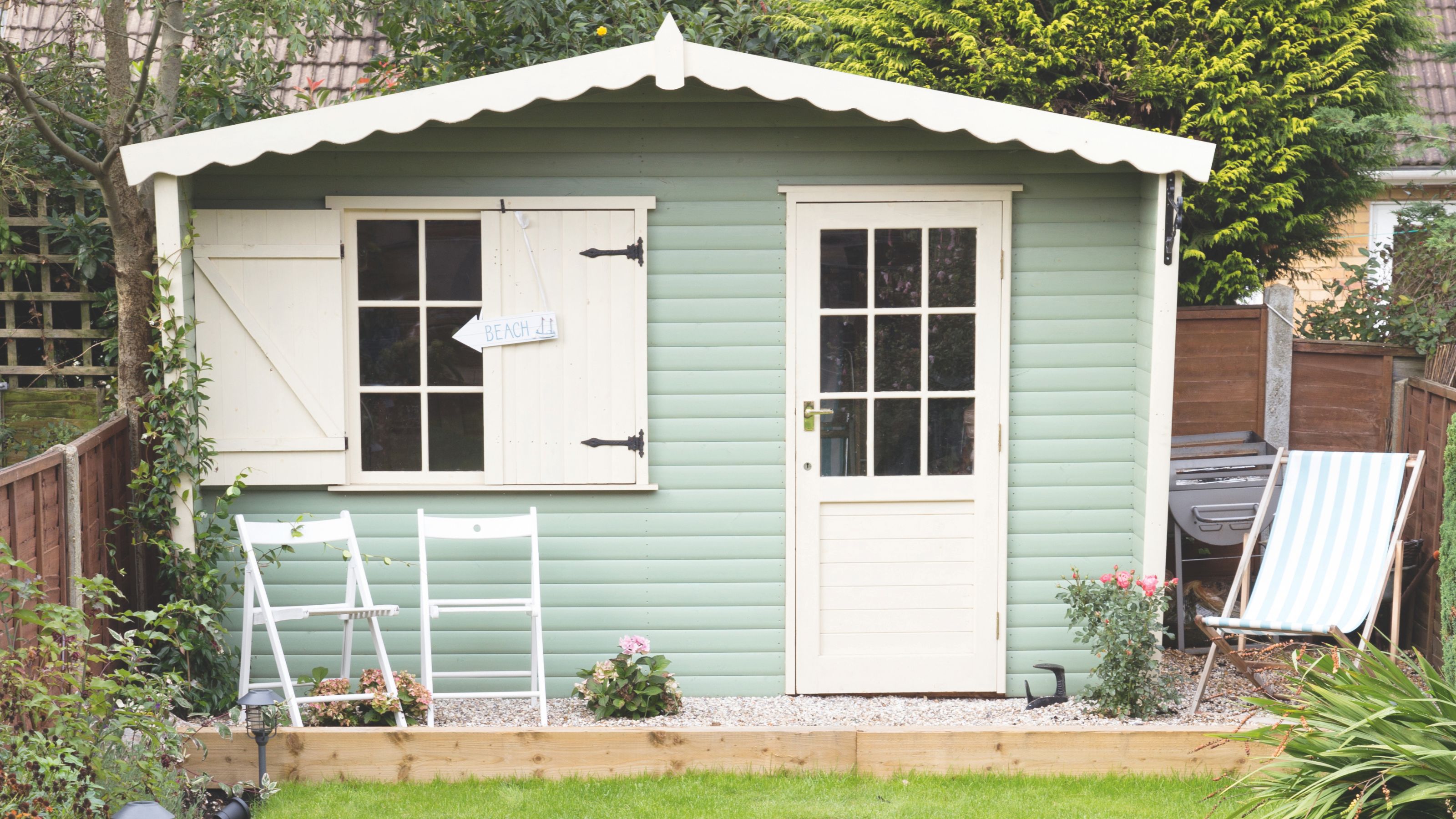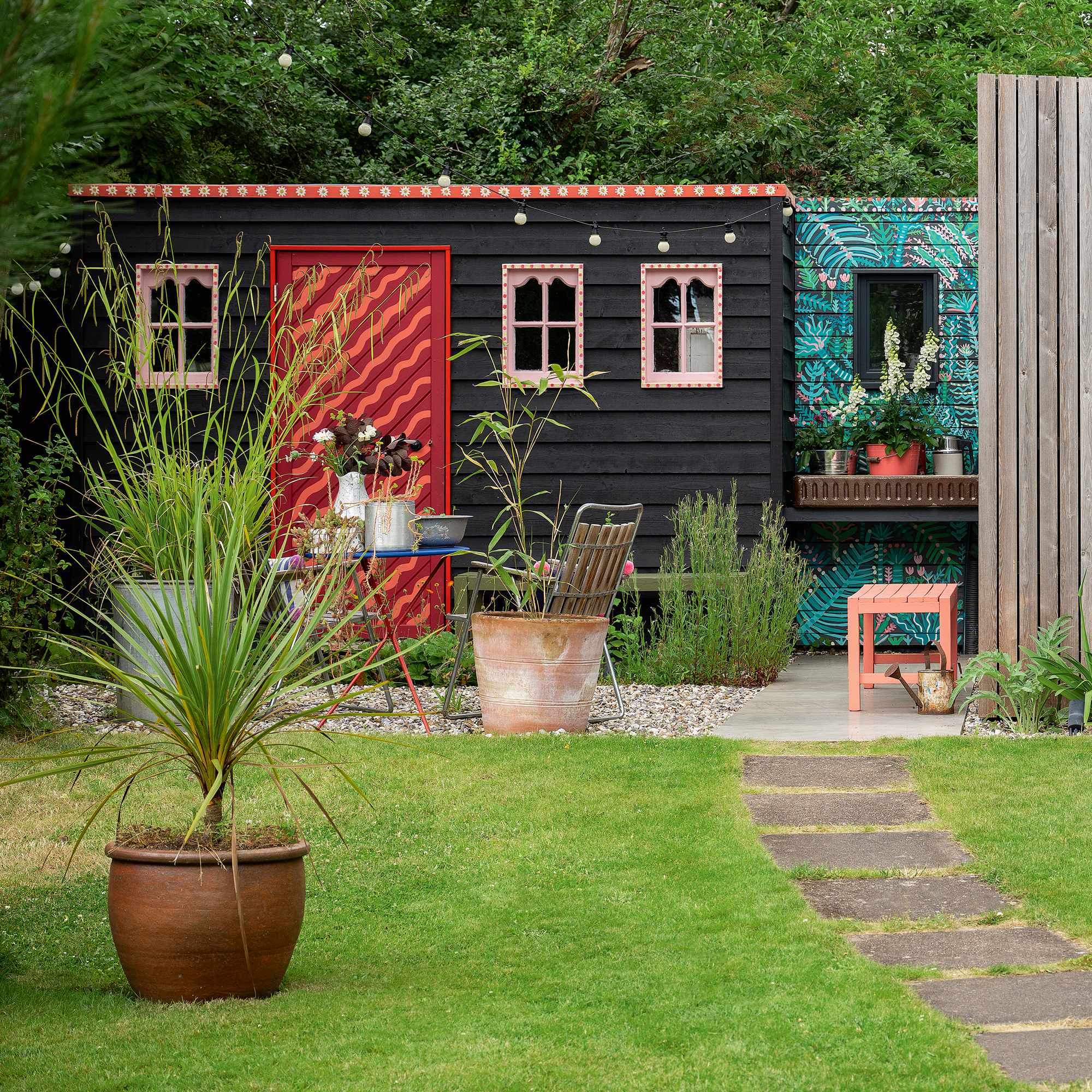Do you need to pay council tax for your shed? Legal pros reveal everything you need to know amidst council clampdown
Your garden shed could cost you extra council tax - this is everything you need to know


Sign up to our newsletter for style inspiration, real homes, project and garden advice and shopping know-how
You are now subscribed
Your newsletter sign-up was successful
Local councils are cracking down on garden sheds that have been converted into living spaces, and the tightening of rules could mean your garden shed is eligible for council tax.
If your garden shed ideas have transformed your space into more than just a space for storing tools, ie, your shed is deemed livable, you could find yourself paying a second council tax to account for the additional living space.
This comes as councils are facing rising financial pressures and are seeking to ensure all eligible self-contained properties, including outbuildings, are properly taxed.
When is a shed taxable?
‘A shed or garden building may become liable for its own council tax if it is considered a self-contained residence. This means it has independent living facilities such as a kitchen, bathroom, and its own separate entrance. In such cases, it can be placed into its own council tax band, separate from the main property,’ explains Nick Rowles-Davies, global lawyer and CEO of Lexolent.
‘Simple storage sheds, hobby rooms, or other non-residential outbuildings normally do not trigger additional tax.’

Government guidance says that a property is considered a separate dwelling if it has a kitchen, bathroom and independent entrance. Structures with these features, including sheds and garden rooms, can be eligible for their own council tax band. Councils have been working with The Valuation Office Agency (VOA) to assess the eligibility of outbuildings by reviewing planning permissions, property sales and on-site inspections.
‘This isn't a brand-new law, but councils are facing mounting financial pressures, including rising costs (e.g., social care) and debt burdens. As a result, they’re revisiting older rules that allow additional properties, even small annexes or garden rooms, to be taxed separately.
Sign up to our newsletter for style inspiration, real homes, project and garden advice and shopping know-how
In essence, the foundations were there all along, but enforcement is tightening now due to fiscal necessity,’ says Raj Chohan, property expert and owner of Golden Key Estates.
How do the rules vary?
While the definition of what constitutes a separate dwelling is consistent, local councils will interpret and apply rules differently. Some councils are more proactive in reclassifying outbuildings than others.

‘While the general test is whether a building qualifies as a separate dwelling, councils have discretion over their assessments. They may also offer discounts or exemptions for specific cases, such as long-term empty homes or uninhabitable structures. This means two similar sheds in different council areas might be treated differently,’ explains Nick.
Raj explains that there are different discounts available in England and Wales.
‘In England, you may qualify for a 50% council tax discount on an annexe that’s classified separately—if it’s used as part of the main dwelling. That discount must be applied for; it isn’t automatic,’ she says.
‘In Wales, councils have additional leeway to impose council tax premiums on second homes or long-term empty dwellings—up to 300%—though that's aimed more at empty properties or holiday homes, not necessarily annexes.’
What should you do if you're affected?
If you feel your outbuilding has been unfairly reclassified as a separate dwelling, there are some measures you can take. Raj recommends appealing to the VOA or the relevant valuation body in your area, providing strong proof that your shed lacks a kitchen or bathroom, doesn’t have an independent entrance or is more akin to a utility or leisure structure.
‘Use floor plans, photos, and descriptions in your appeal to show it’s not a standalone home,’ she advises.

You can also seek advice at organisations such as the HomeOwners Alliance or Citizens Advice. These bodies can assist you with preparing an appeal and advising you on your rights. There are some instances where you may be exempt, too.
‘Exemptions can include annexes that remain part of the main home, properties for sale or rent, outbuildings used for armed forces accommodation, or those with planning restrictions against residential use. Councils can also use their discretion to reduce or remove charges in some cases,’ comments Nick.
It's always worth reaching out to a legal expert or advice body if you are unsure what you owe. Being aware of the rules and regulations, and how they apply to you, means you won't get stung by unexpected tax.

Kezia Reynolds joined the Ideal Home team as News Writer in September 2024. After graduating from City, University of London in 2022 with a bachelor’s degree in journalism, Kezia kicked off her career spending two years working on women’s weekly magazines. She is always on the lookout for the latest home news, finding you the best deals and trends - so you don’t miss a thing!